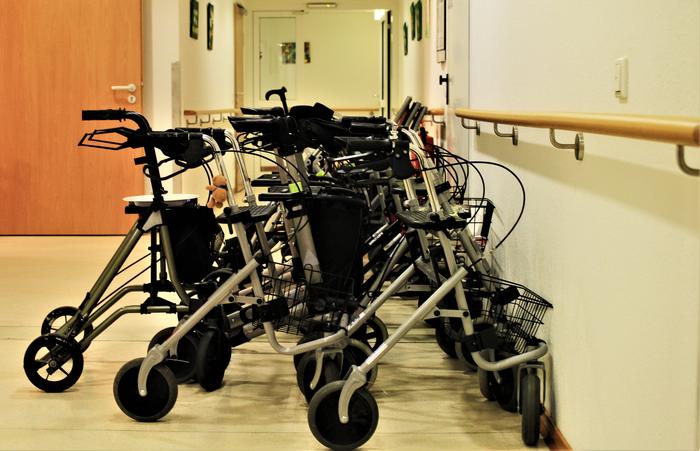The period of austerity politics from 2012 to 2018 was associated with steeper increases in frailty with age compared to pre-austerity between 2002 and 2010, according to a new study published February 7th in the open-access journal PLOS ONE by Carys Pugh of the University of Edinburgh, UK, and colleagues.

Credit: Carola68, Pixabay, CC0 (https://creativecommons.org/publicdomain/zero/1.0/)
The period of austerity politics from 2012 to 2018 was associated with steeper increases in frailty with age compared to pre-austerity between 2002 and 2010, according to a new study published February 7th in the open-access journal PLOS ONE by Carys Pugh of the University of Edinburgh, UK, and colleagues.
Previous research has linked a stalling in life expectancy growth to austerity politics implemented in response to the 2008-2009 financial crisis. However, the mechanism through which public spending cuts are associated with decreased life expectancy has been unclear.
In the new study, researchers analyzed data on the frailty index, which captures broad age-related declines in functional ability and physical and mental health. The analysis included 16,410 people enrolled in the English Longitudinal Study of Ageing 2002-2018 with a mean age of 67 years and a mean frailty index score of 0.15 (on a scale of 0 to 1, with 1 being maximum frailty).
The study found that frailty index scores increased more rapidly with age after implementation of austerity policies. This was the case for all population groups, across genders and socioeconomic groups, but was particularly so for the oldest people. For instance, among the poorest women aged 85+, the frailty index increased an average of 0.013 per year in the 8-year pre-austerity period (2002-2010) but increased by 0.021 per year, two thirds as much again, in the 6-year austerity period (2012-2018).
The additional increase in frailty for all ages from 2012 to 2018 was similar in magnitude to the difference in mean frailty score between people 5 years apart – those aged 65-69 and those aged 70-74.
The authors conclude that frailty may be one mechanism through which public spending reductions have negative impacts on health and mortality, particularly among the oldest people in society. New austerity measures, they write, need careful consideration given their potential impact on long-term health.
The authors add: “Compared to the 2000s, we found that older people in England were becoming more frail, more quickly during the 2010s, and that frailty was particularly common in the poorest in society. Our work is another warning about the possible impacts of austerity on the health of an ageing nation.”
#####
In your coverage please use this URL to provide access to the freely available article in PLOS ONE: https://journals.plos.org/plosone/article?id=10.1371/journal.pone.0296014
Citation: Pugh C, Eke C, Seth S, Guthrie B, Marshall A (2024) Frailty before and during austerity: A time series analysis of the English Longitudinal Study of Ageing 2002–2018. PLoS ONE 19(2): e0296014. https://doi.org/10.1371/journal.pone.0296014
Author Countries: UK
Funding: This research was funded by the Legal & General Group (research grant to establish the independent Advanced Care Research Centre at University of Edinburgh). The funders had no role in study design, data collection and analysis, decision to publish, or preparation of the manuscript.
Journal
PLoS ONE
DOI
10.1371/journal.pone.0296014
Method of Research
Observational study
Subject of Research
People
Article Title
Frailty before and during austerity: A time series analysis of the English Longitudinal Study of Ageing 2002–2018
Article Publication Date
7-Feb-2024
COI Statement
The authors have declared that no competing interests exist.




